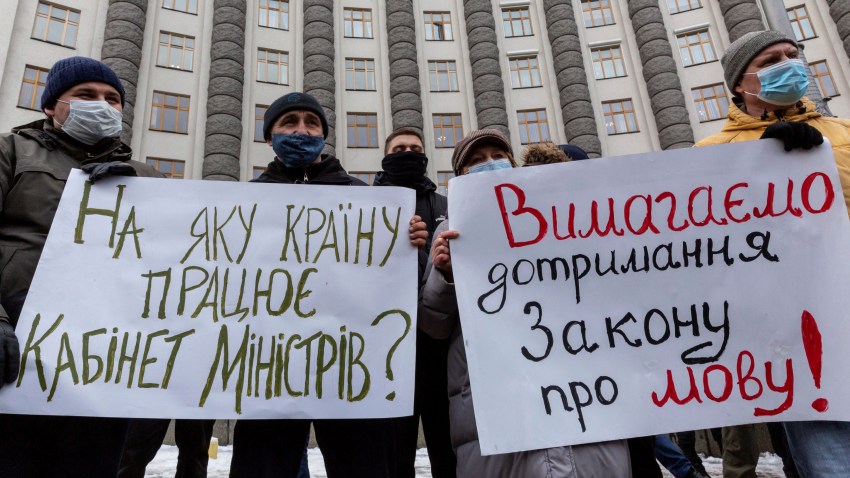In a rambling, grievance-laced speech on Feb. 21, 2022, Russian President Vladimir Putin cited the alleged oppression of Russian speakers as a pretext for his invasion of Ukraine. More than two years on, few themes have featured as prominently in Kremlin propaganda as the supposed persecution of Russian speakers. It is ironic, then, that Putin—who imagines himself among the pantheon of great Russian rulers—has done more harm to the language’s standing than perhaps any other leader in at least a century. Across the post-Soviet world, Putin’s invasion has dramatically accelerated the decline of Russian.
Nowhere is this decline more apparent than in Ukraine, which counts more native Russian speakers than any country outside of Russia itself. The invasion has accelerated the language’s decline in two distinct, but reinforcing, ways. First is the fact that the war has most affected Ukraine’s Russophone South and East, decimating and depopulating the same Russophone communities that Putin promised to save. It is hard to imagine Russian ever regaining its pre-war strength in towns like Avdiivka or Bakhmut, for example, in light of the morbid fact they have been flattened.
What’s more, the intensity of fighting across Ukraine’s South and East has meant a substantial share of the 14 million displaced Ukrainians (including 6 million who fled the country altogether) are Russophone. These refugees are now being assimilated into populations that speak foreign languages abroad and Ukrainian across the country’s relatively safer Center and West, where Russian is rare. Whether in London or Lyiv, the use of Russian among this massive diaspora is fading, and its transmission to the next generation in serious doubt.

